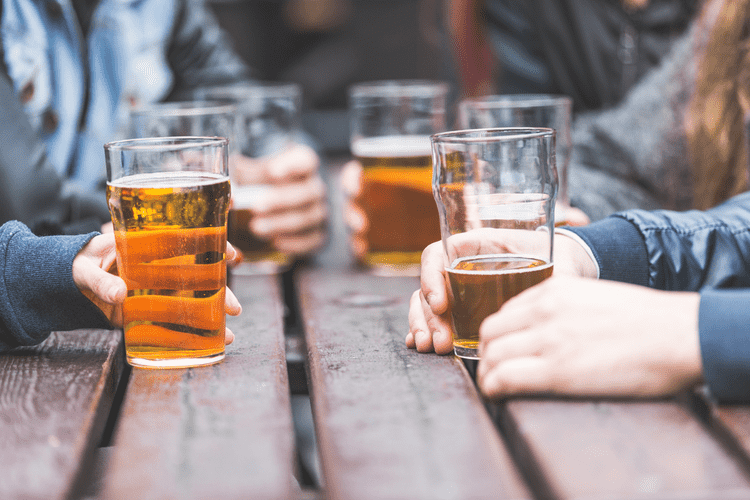A 2014 study looking at infidelity also found that people with narcissism were more likely to be unfaithful during a relationship. A 2015 study of college sexual assaults revealed that perpetrators scored highly on a narcissistic personality scale after completing a questionnaire. Both grandiose and vulnerable narcissism are strong predictors of alcohol-related problems, according to a 2018 study of 345 college students. Below, we’ll dive into just how strong the link between narcissism and alcoholism is, the similarities and differences of these disorders, and what to do if you or someone you love shares these traits. Also, people with AUD might seem to behave similarly to people with narcissistic traits. A 2018 study found that people with personality disorders were more likely to have AUD at some point in their lives.
Gain Validation and Attention

Setting boundaries is key to protecting oneself from the harmful effects of their behavior and maintaining a sense of control in the relationship. To mitigate the impacts, it’s imperative to reduce alcohol consumption and seek the right support. Establishing clear boundaries is essential in safeguarding one’s well-being and fostering healthier relationships. Dry-drunk individuals may also exhibit narcissistic behaviors as they struggle to cope with unresolved emotional issues and challenges. If you are an enabler in a narcissist’s life, it is important to recognize your role in the dynamic and take steps to change it. This may involve setting boundaries with the narcissist, seeking support from a therapist or support group, and learning to prioritize your own needs and well-being.
- For both narcissists and addicts, the major casualty is the destruction of personal relationships.
- What you may have overlooked, however, is the vast difference between the subtle individuals and those who are blatantly boastful.
- When exploring the connection between alcoholism and narcissism, it is crucial to understand the cyclical relationship that exists between these two conditions.
- The content provided is for entertainment and informational purposes only and should not be considered a substitute for professional legal, medical, or mental health advice, diagnosis, or treatment.
Alcohol Abuse and Narcissistic Tendencies
- This mutual reinforcement between alcoholism and narcissistic behaviors creates a self-perpetuating cycle that can be challenging to break.
- Your therapist can help you feel heard and understood and provide a safe space for you to explore your feelings and experiences.
- People with a pattern of narcissism often turn to alcohol to reinforce a false sense of grandiosity.
- Additionally, there are different types of narcissism, including vulnerable narcissism and grandiose narcissism.
- By refusing compliance, seeking validation from allies, and utilizing legal action when necessary, we show that manipulation won’t go unchallenged.
Alcohol can provide a temporary sense of being cared for or admired, which is particularly appealing to individuals with an underlying sense of emotional deprivation. Vulnerable narcissists often experience depression Top 5 Advantages of Staying in a Sober Living House and anxiety, which alcohol can alleviate, at least in the short term. Grandiose narcissists have an inflated sense of self, an unshakeable belief in their own superiority, and a lack of empathy for those around them.
Lack of Empathy
Unlike overt narcissists who display grandiose behaviors openly, covert narcissists mask their true intentions behind a veil of apparent sensitivity and vulnerability. Their insatiable need for admiration drives them to exploit others subtly, using passive-aggressive strategies and emotional manipulation to maintain control. Understanding these key differences between covert and overt narcissists is essential for setting boundaries and protecting oneself from their harmful influence. By recognizing the signs of covert narcissism and the overt behaviors of narcissists, individuals can navigate relationships more effectively and safeguard their emotional well-being. To recognize covert narcissistic behavior, one must carefully observe and analyze the subtle signs of manipulation and deceit exhibited by the individual.
When we ignore a covert narcissist, it can trigger a range of reactions from them. They might become more passive-aggressive in their behavior, seeking attention by playing the victim or the hero. When identifying red flags of a covert narcissist, we must observe subtle manipulative tactics, such as gaslighting and playing the victim. These individuals excel at masking their true intentions behind a facade of kindness and empathy.
Coping Strategies for Dealing With Narcissists

A person struggling with alcoholism can appear to dismiss friends and family to spend time with others that support their need to drink excessively. To family, it can appear that their loved one is putting these newfound friends ahead of them (similar to what a narcissist would do). Alcoholism and Narcissistic Personality Disorder have some overlapping behaviors. Understanding how these two separate disorders are similar may offer some insight into the type of addiction treatment that would be most beneficial. Our approach centers on treating people with the same kindness and respect that we value for ourselves.
What is an Alcoholic Narcissist?
In reality, these behaviors are often a mask for an individual’s fragile self-esteem and self-image. The results speak to the effects that different types of narcissism have on alcohol use, alcohol problems and attitudes towards alcohol problems among young adults. Following alcohol guidelines can help people stay within moderate levels of alcohol consumption. For females, it is not advisable to consume more than one unit of alcohol per day. People may be unable to prevent certain factors, such as genetic reasons, that increase the risk of AUD and NPD.
Narcissism vs. narcissistic personality disorder
The negative consequences of their actions, combined with the ongoing cycle, can lead to a further deepening of narcissistic tendencies and alcohol dependence. The cycle of https://thealabamadigest.com/top-5-advantages-of-staying-in-a-sober-living-house/ begins when individuals with narcissistic traits turn to alcohol as a means of coping with their emotional vulnerabilities and insecurities. Alcohol provides them with a temporary escape from their inner turmoil and a false sense of grandiosity, which aligns with their narcissistic tendencies. Research suggests a correlation between alcohol abuse and narcissistic traits. Individuals with narcissistic personality traits may be more vulnerable to developing alcohol use disorders.
